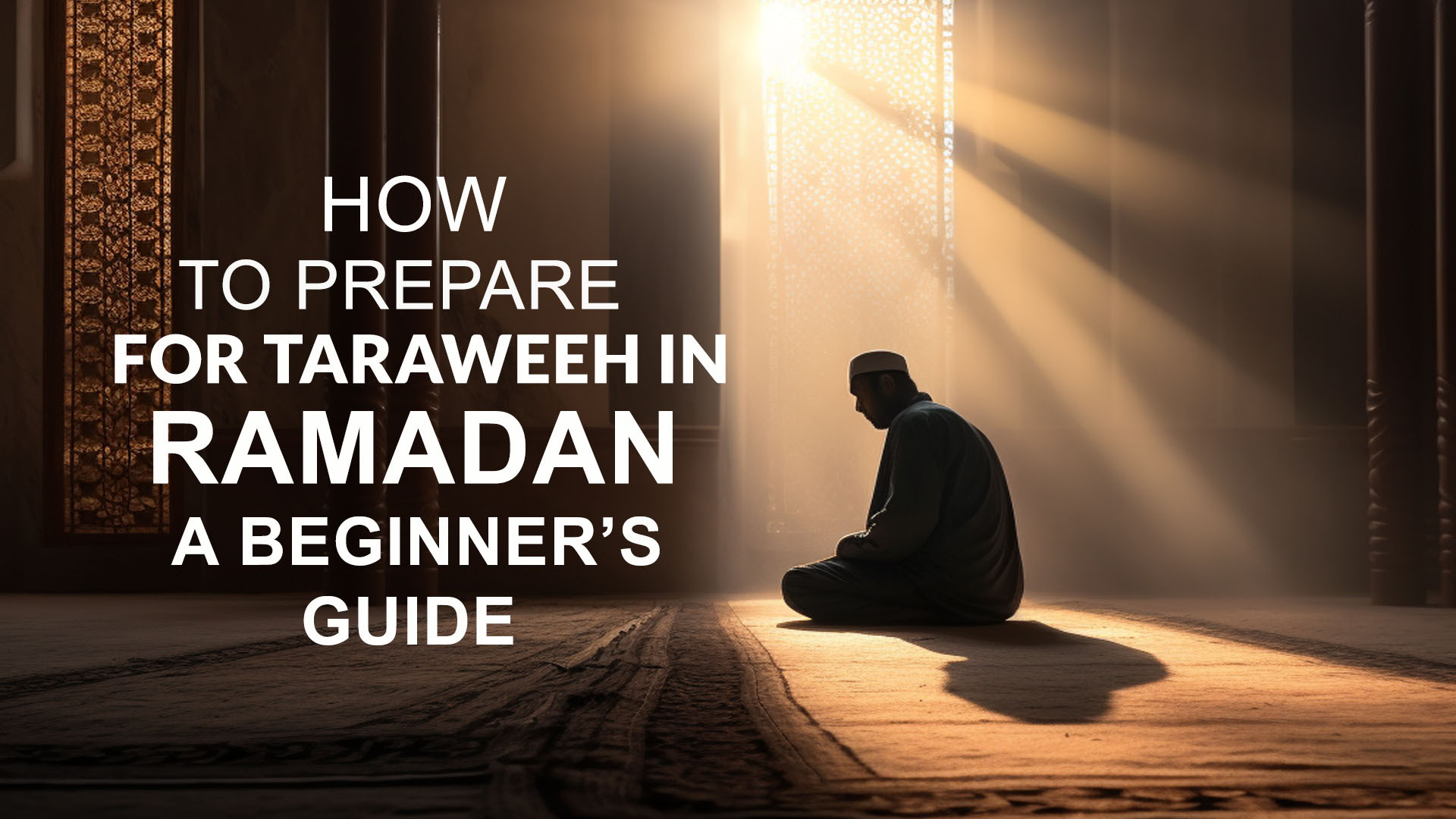Ramadan, the holiest month in Islam, brings with it numerous opportunities for spiritual growth and self-improvement. One of the key practices during Ramadan is performing Taraweeh prayers. Taraweeh, derived from the Arabic word “tarawih,” meaning “rest,” refers to the special night prayers performed during this blessed month.
For beginners, preparing for Taraweeh can seem daunting, but with proper guidance and preparation, it can become a deeply fulfilling and enriching experience. In this beginner’s blog by Darussalam, we’ll explore how to prepare for Taraweeh in Ramadan, step by step.
Exploring the Importance of Taraweeh:
Delve into the profound significance of Taraweeh prayers during the sacred month of Ramadan.
1. Taraweeh prayers are Sunnah Mu’akkadah (emphasized Sunnah) and hold immense spiritual merit.
2. These prayers offer an opportunity to seek forgiveness, draw closer to Allah, and earn immense rewards.
3. The Prophet Muhammad (peace be upon him) encouraged Muslims to observe Taraweeh during Ramadan.
Grasping the Fundamentals of Taraweeh:
Familiarize yourself with the basic structure and format of Taraweeh prayers. Learn about the number of rak’ahs typically performed
1. Taraweeh prayers consist of performing multiple units (rak’ahs) of prayer after the obligatory Isha prayer.
2. Traditionally, Taraweeh prayers are performed in sets of two rak’ahs, followed by a brief rest.
3. The number of rak’ahs varies, typically ranging from 8 to 20, depending on different schools of thought.
Learn More: The Ramadan Calendar 2024
Establishing a Worship Routine for Taraweeh:
Engaging in the rituals of Umrah during Ramadan holds immense spiritual significance and rewards. It’s essential to understand and prepare for these rituals to ensure a fulfilling experience.
1. Create a daily schedule that allows ample time for spiritual activities, including Taraweeh prayers.
2. Set aside specific times for reciting the Quran, making dua (supplication), and engaging in dhikr (remembrance of Allah).
3. Strive to maintain consistency in your worship routine throughout the month of Ramadan.
Committing Short Surahs and Verses to Memory:
Enhance your Taraweeh experience by memorizing select surahs and verses from the Quran.
1. Memorizing shorter surahs and verses from the Quran can enhance the quality of your Taraweeh prayers.
2. Focus on memorizing surahs such as Surah Al-Fatiha, Surah Al-Ikhlas, Surah Al-Falaq, and Surah An-Nas.
3. Reciting these surahs during Taraweeh prayers can deepen your connection with the Quran and facilitate concentration.
Read More: Spiritual Mysteries of Laylat-ul-Qadar
Maintaining a Balanced Pace:
Strike a balance between devotion and physical endurance during Taraweeh prayers.
1. Taraweeh prayers can be lengthy, so it’s essential to pace yourself to avoid exhaustion.
2. Take short breaks between sets of rak’ahs to catch your breath and hydrate if necessary.
3. Focus on maintaining khushu’ (concentration) and sincerity in your prayers rather than rushing through them.
Selecting an Optimal Prayer Environment:
Choose a tranquil and comfortable space conducive to focused worship.
1. Select a quiet and comfortable area for performing Taraweeh prayers, free from distractions.
2. Ensure that the space is well-lit and adequately ventilated to create a conducive environment for worship.
3. Consider praying in congregation at a local mosque to experience the communal spirit of Taraweeh.
Seeking Guidance and Support for Taraweeh Namaz:
Seek knowledge and advice from knowledgeable individuals or spiritual mentors regarding the performance of Taraweeh prayers.
1. If you’re new to performing Taraweeh prayers, don’t hesitate to seek guidance from knowledgeable individuals or scholars.
2. Attend local Islamic lectures or seminars that provide insights into the significance and etiquette of Taraweeh.
3. Utilize online resources, such as authentic Islamic websites and forums, to seek clarification on any doubts or questions.
Supplicating for Acceptance and Guidance:
Conclude each Taraweeh prayer with a heartfelt dua, seeking acceptance and blessings from Allah.
1. End each Taraweeh prayer with sincere dua, asking Allah to accept your worship and grant you the strength to continue throughout Ramadan.
2. Pray for forgiveness, guidance, and blessings for yourself, your loved ones, and the entire Muslim Ummah.
Read More: Essential Do’s and Don’ts Guide During Ramadan 2024
Conclusion:
Preparing for Taraweeh in Ramadan requires dedication, knowledge, and spiritual readiness. By understanding its significance, establishing a routine, memorizing key verses, and seeking guidance, beginners can embark on this rewarding journey with confidence. Remember, Taraweeh is not just about the number of rak’ahs, but about connecting with Allah and seeking His mercy. May this guide aid you in making the most of your Taraweeh experience, and may your prayers be accepted in this blessed month of Ramadan.
FAQs About How to prepare for Taraweeh in Ramadan:
How many rak’ahs should I pray during Taraweeh?
The number of rak’ahs varies among different Islamic traditions, with some praying 8, 12, or even 20 rak’ahs. It’s recommended to follow the practice of your local mosque or the guidance of a knowledgeable scholar.
Can women perform Taraweeh prayers at home?
Yes, women are encouraged to perform Taraweeh prayers at home, following the same format as men. They can also join congregational prayers at the mosque if feasible and comfortable for them.
What should I recite during Taraweeh prayers if I haven’t memorized much of the Quran?
If you haven’t memorized many surahs from the Quran, you can recite shorter chapters or verses that you are familiar with. Alternatively, you can recite Surah Al-Fatiha and any other surahs you know, or you can recite tasbih (subhanAllah, alhamdulillah, Allahu akbar) between each rak’ah.
Is it permissible to pray Taraweeh alone?
While it’s recommended to pray Taraweeh in the congregation, it’s permissible to pray alone if attending the mosque is not feasible. However, praying in a congregation enhances the spiritual experience and fosters a sense of community.
Can I combine my missed Taraweeh prayers with my Fajr prayers?
It’s not permissible to combine missed Taraweeh prayers with Fajr prayers. If you miss Taraweeh prayers, you can make them up during the night or at any other convenient time before the next day’s Taraweeh.













